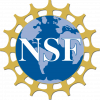STEMCees

In partnership with Drs. Dionne Champion, University of Florida; Brian Gravel, Tufts University, Amon Millner, Olin College of Engineering; Christopher Wright and Ayana Allen-Handy, Drexel University, and Rasheda Likely, Kennesaw State University.
Collaborative Research: Using Culturally Sustaining STEM+C Learning Environments to Explore Computational Learning and Identity (STEMCees) is a three-year design research project that aims to create and understand learning environments for middle school youth that integrate computational making practices, interdisciplinary STEM learning, and cultural and expressive practices from hip-hop. The 60-hour implementation will take place in three community-facing organizations that serve youth from communities of color in Gary, Indiana; Philadelphia, Pennsylvania; and Cambridge, Massachusetts. It will also seek to develop and research a model in which sites across the country develop their own hip hop computing projects and share them in a cyber-cypher. Although the project aims to produce findings from research, it will reach approximately 300-400 youth. Research questions focus on what elements of the model contribute to youth learning in regard to computational making practices, physics, mathematics, and the ways in which they develop identities as STEM and CS learners and doers.
The project aims to engage youth from groups underrepresented in STEM and computing by producing a model learning environment that emphasizes the ubiquity of computing and computational making practices that already exist in young people’s lives and expands youth’s practices and skills in those areas. It simultaneously recognizes youth’s multiple socio-ecological resources for learning and identity building in ways that do not silo disciplinary and everyday learning. The proposed project will produce three main outcomes: a) principles and research findings for culturally sustaining pedagogies in computer science and STEM, b) out-of-school time learning in computational making practices, and c) assessments that align with culturally sustaining learning environments in computational making.

Grant # 2034782
